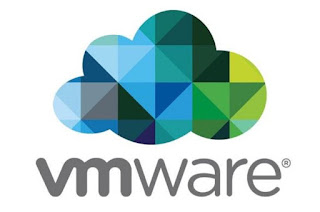VMware Introduces Evolved Cloud Strategy to
Address IT Decentralization and Drive Digital Business Innovation in Singapore
Address IT Decentralization and Drive Digital Business Innovation in Singapore
· More than 61 per cent of Singapore respondents
highlighted that the decentralization of IT is taking place within their
organizations, according to VMware’s The State of the Cloud 2016 research
highlighted that the decentralization of IT is taking place within their
organizations, according to VMware’s The State of the Cloud 2016 research
· Respondents indicated that decentralized IT
results in cost duplication, security risks and widening IT skills gap,
outweighs its positive effects, and introduces challenges and evolution to IT’s
role within the enterprise
results in cost duplication, security risks and widening IT skills gap,
outweighs its positive effects, and introduces challenges and evolution to IT’s
role within the enterprise
· VMware Cross-Cloud Architecture key for IT
departments looking to provide their organizations with the freedom to
innovate, but yet maintain control and ensure efficiency and security
departments looking to provide their organizations with the freedom to
innovate, but yet maintain control and ensure efficiency and security
Singapore, 15 November, 2016 – Today at vForum Singapore, VMware, Inc. (NYSE: VMW), a global leader in cloud
infrastructure and business mobility, addressed the most significant impediment
to digital business innovation in the Asia-Pacific region: the decentralization
of IT and its detrimental effect on enterprise operations. With insights from
the “VMware State of the Cloud 2016” research report, VMware highlighted that
IT departments are being sidestepped by business leaders who adopt their own
cloud-based technologies to innovate faster and meet growth objectives. At the
same time, IT departments are left to shoulder responsibility for things that
go wrong. This raises a pressing need for IT to adopt a common operating
environment for all clouds to mitigate complexities, inefficiencies and
security risks, and more importantly, simultaneously enable innovation.
infrastructure and business mobility, addressed the most significant impediment
to digital business innovation in the Asia-Pacific region: the decentralization
of IT and its detrimental effect on enterprise operations. With insights from
the “VMware State of the Cloud 2016” research report, VMware highlighted that
IT departments are being sidestepped by business leaders who adopt their own
cloud-based technologies to innovate faster and meet growth objectives. At the
same time, IT departments are left to shoulder responsibility for things that
go wrong. This raises a pressing need for IT to adopt a common operating
environment for all clouds to mitigate complexities, inefficiencies and
security risks, and more importantly, simultaneously enable innovation.
VMware’s State of the Cloud 2016 research
report found that enterprises in Singapore face high levels of IT
decentralization, with more than 61 percent of respondents agreeing that the
purchasing and management of IT are taking place outside of IT’s purview.
Survey respondents from Singapore also indicated that their companies suffer
from a lack of transparency over IT spending – the highest in the Asia Pacific
region (69 percent), and lack of awareness of overall IT spending across the
business – the second highest in the region (71 percent).
report found that enterprises in Singapore face high levels of IT
decentralization, with more than 61 percent of respondents agreeing that the
purchasing and management of IT are taking place outside of IT’s purview.
Survey respondents from Singapore also indicated that their companies suffer
from a lack of transparency over IT spending – the highest in the Asia Pacific
region (69 percent), and lack of awareness of overall IT spending across the
business – the second highest in the region (71 percent).
Line of business leaders feel that IT is not
moving fast enough to support the business and its drive for innovation. This
has given rise to decentralization and multi-cloud adoption, with line of
business leaders in local firms purchasing an average of five additional cloud
services without consulting their IT departments.
moving fast enough to support the business and its drive for innovation. This
has given rise to decentralization and multi-cloud adoption, with line of
business leaders in local firms purchasing an average of five additional cloud
services without consulting their IT departments.
While many respondents agreed this decentralized
approach increases business responsiveness to market changes (64 percent),
allows them to bring new products and services to market more quickly (57
percent), increases employee satisfaction (57 percent) and even helps to
attract better talent (52 percent), the respondents also agreed that the
decentralized approach has led to a duplication of spending on IT services (56
percent), applications being developed outside of corporate or government
regulations (57 percent) and lack of regulatory compliance around data
protection (63 percent).
approach increases business responsiveness to market changes (64 percent),
allows them to bring new products and services to market more quickly (57
percent), increases employee satisfaction (57 percent) and even helps to
attract better talent (52 percent), the respondents also agreed that the
decentralized approach has led to a duplication of spending on IT services (56
percent), applications being developed outside of corporate or government
regulations (57 percent) and lack of regulatory compliance around data
protection (63 percent).
More than two-third of local respondents
agreed that decentralization increases their firms’ vulnerabilities to
hacking and cyber-attacks (69 percent), given that 64 percent indicated that
lines of business are purchasing non-secure solutions. The research also
pointed to the region’s widening skill gap, with almost 7 in 10 respondents
highlighting that decentralization has caused IT’s job to become more
challenging, by introducing a shift in expectations on how they should be
supporting the business. Seven in 10 respondents now believe the IT department
should be responsible for enabling other lines of business to drive innovation,
but must set the strategic direction and be accountable for security.
agreed that decentralization increases their firms’ vulnerabilities to
hacking and cyber-attacks (69 percent), given that 64 percent indicated that
lines of business are purchasing non-secure solutions. The research also
pointed to the region’s widening skill gap, with almost 7 in 10 respondents
highlighting that decentralization has caused IT’s job to become more
challenging, by introducing a shift in expectations on how they should be
supporting the business. Seven in 10 respondents now believe the IT department
should be responsible for enabling other lines of business to drive innovation,
but must set the strategic direction and be accountable for security.
“This echoes what we’ve been hearing from
our customers across the region – every single organization has a hybrid cloud
environment, with workloads and applications across different platforms. The
challenge for CIOs is to continue enabling their companies to innovate and meet
growth objectives, yet effectively manage and secure applications dispersed
across multiple cloud environments. VMware’s Cross-Cloud Architecture responds
directly to this challenge by offering cloud freedom and control,” said Duncan
Hewett, senior vice president and general manager, Asia-Pacific & Japan,
VMware.
our customers across the region – every single organization has a hybrid cloud
environment, with workloads and applications across different platforms. The
challenge for CIOs is to continue enabling their companies to innovate and meet
growth objectives, yet effectively manage and secure applications dispersed
across multiple cloud environments. VMware’s Cross-Cloud Architecture responds
directly to this challenge by offering cloud freedom and control,” said Duncan
Hewett, senior vice president and general manager, Asia-Pacific & Japan,
VMware.
To help organizations reconcile the
priorities and objectives of both business leaders and IT decision makers in
today’s multi-cloud landscape, VMware has extended the company’s hybrid cloud
strategy with the VMware Cross-Cloud Architecture™, enabling customers to run,
manage, connect, and secure their applications across clouds and devices in a
common operating environment. A new set of Cross-Cloud Services which VMware is
developing, will enable enterprises to manage, govern and secure applications
running across public clouds, including Amazon Web Services (AWS), Azure and
IBM Cloud.
priorities and objectives of both business leaders and IT decision makers in
today’s multi-cloud landscape, VMware has extended the company’s hybrid cloud
strategy with the VMware Cross-Cloud Architecture™, enabling customers to run,
manage, connect, and secure their applications across clouds and devices in a
common operating environment. A new set of Cross-Cloud Services which VMware is
developing, will enable enterprises to manage, govern and secure applications
running across public clouds, including Amazon Web Services (AWS), Azure and
IBM Cloud.
In addition, VMware Cloud Foundation™ offers a
new “as-a-service” option that delivers the full power of the
software-defined data center (SDDC) in a hybrid cloud environment.
new “as-a-service” option that delivers the full power of the
software-defined data center (SDDC) in a hybrid cloud environment.
For the LATEST tech updates,
FOLLOW us on our Twitter
LIKE us on our FaceBook
SUBSCRIBE to us on our YouTube Channel!






